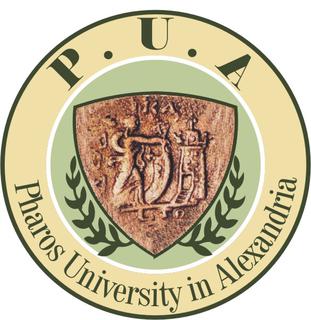This article needs additional citations for verification .(August 2013) |
The Higher Institute of Engineering is an educational institute located in the Culture & Science City campus in 6th of October City, Egypt.
This article needs additional citations for verification .(August 2013) |
The Higher Institute of Engineering is an educational institute located in the Culture & Science City campus in 6th of October City, Egypt.
The Higher Institute for Engineering, 6 October City (HIE) was founded on 18 October 1994. It was established by the Ministerial Decree No. 1484. The Supreme Council of Universities issued degree equivalency based on decree no. (49) on 4/6/2001.
The Institute grants the Bachelor of Science (BSc) degree in four engineering disciplines: Construction and Building Engineering (CBE); Information and Computer Engineering (ICE); Administrative Industrial Engineering (AIE); and Mecatronics Engineering (MTE).
The undergraduate degree programmes, which last for 5 years, are accredited by the Supreme Council of Universities in Egypt, and its educational curriculum is supervised and revised by the Egyptian Ministry of Higher Education. The institute is affiliated with the Development of 6 October City Society. [1]
Bachelor's degree in engineering from a recognized university [2]
Country: Egypt
Educational System: Credit Hours
Credential: Bachelor of Science (BSc)
Awarded by: Higher Institute of Engineering – 6 October City
Admission requirements: General Secondary Education Certificate
Length of Program: Five years
An academic degree is a qualification awarded to a student upon successful completion of a course of study in higher education, usually at a college or university. These institutions often offer degrees at various levels, usually divided into undergraduate and postgraduate degrees. The most common undergraduate degree is the bachelor's degree, although some educational systems offer lower-level undergraduate degrees such as associate and foundation degrees. Common postgraduate degrees include engineer's degrees, master's degrees and doctorates.
A bachelor's degree or baccalaureate is an undergraduate degree awarded by colleges and universities upon completion of a course of study lasting three to six years. The two most common bachelor's degrees are the Bachelor of Arts (BA) and the Bachelor of Science. In some institutions and educational systems, certain bachelor's degrees can only be taken as graduate or postgraduate educations after a first degree has been completed, although more commonly the successful completion of a bachelor's degree is a prerequisite for further courses such as a master's or a doctorate.
Degree abbreviations are used as an alternative way to specify an academic degree instead of spelling out the title in full, such as in reference books such as Who's Who and on business cards. Many degree titles have more than one possible abbreviation, with the abbreviation used varying between different universities. In the UK it is normal not to punctuate abbreviations for degrees with full stops, although this is done at some universities.
An institute of technology is an institution of tertiary education that specializes in engineering, technology, applied science, and natural sciences.

Sri Lanka Institute of Information Technology is a private university located in Malabe and Colombo, Sri Lanka. It specialises in various fields like technology and management.
An engineer's degree is an advanced academic degree in engineering which is conferred in Europe, some countries of Latin America, North Africa and a few institutions in the United States. The degree may require a thesis but always requires a non-abstract project.

Private universities and private colleges are institutions of higher education that are not operated, owned, or institutionally funded by governments. However, they often receive tax breaks, public student loans, and grants from governments. Depending on their location, private universities may be subject to government regulation. Private universities may be contrasted with public universities and national universities. Many private universities are nonprofit organizations.
Education in Oman is provided free of charge up to end of secondary education, though attendance is not mandatory at any level. In 1970 there were only three formal schools with 900 students in the whole state. Oman's national educational program expanded rapidly during the 1970s and the 1980s, with the Kingdom of Saudi Arabia sending teachers on its own expense during that time period. In 2006–2007 about 560,000 students attended 1053 public schools. The number of students in private schools is about 65,000. There are also extensive programmes to combat adult illiteracy. Sultan Qaboos University, the only national university near Muscat, was founded in 1986, and in 2006 it had 13,500 students. The Human Development Report found the literacy rate to be 93.0% in adults, up from 54.7% in 1990. For the same period, the youth literacy rate increased from 85.6 to 97.3%. Public expenditure on education was reported to be 4.6% of GDP and 26.1% of total government spending.

El Shorouk Academy is a private Egyptian educational academy, officially licensed by the Ministry of Higher Education and Scientific Research, and offering programs in Architecture, Engineering, Mass communication, Media, Computer science, Accounting, Management Information Systems and Business administration, it is located in El Shorouk, Cairo, Egypt and has been operating since 1995

Engineering education is the activity of teaching knowledge and principles to the professional practice of engineering. It includes an initial education, and any advanced education and specializations that follow. Engineering education is typically accompanied by additional postgraduate examinations and supervised training as the requirements for a professional engineering license. The length of education, and training to qualify as a basic professional engineer, is typically five years, with 15–20 years for an engineer who takes responsibility for major projects.

</ref>

Ovidius University of Constanța is a public higher education institution in Constanța, Romania founded in 1961 as a Pedagogical Institute and transformed into a comprehensive university in 1990. As the Charter of the university states, the Pedagogical Institute was founded by Order of the Ministry of Education no. 654 of 1961, comprising four faculties. By State Council Decree no. 209 of 1977 the institute became a Higher Education Institute and reorganized. By Government Decision 209 of 1990 the institute became a university and, a year later, by Order of the Ministry of Education and Science no. 4894 of 1991, the university was given the present name. The university is notable for having Romanian singer Inna as one of its alumni.
The state of Uttar Pradesh had a small tradition of learning, although it had remained mostly confined to the elite class and the religious establishment.

A Bachelor of Science is a bachelor's degree that is awarded for programs that generally last three to five years.
Higher education accreditation is a type of quality assurance process under which services and operations of post-secondary educational institutions or programs are evaluated to determine if applicable standards are met. If standards are met, accredited status is granted by the agency.

India has a publicly funded higher education system that is the third largest in the world. The main governing body at the tertiary level is the University Grants Commission, which enforces its standards, advises the government, and helps coordinate between the center and the state. Accreditation for higher learning is overseen by 15 autonomous institutions established by the University Grants Commission (UGC). Apart from these institutions, there are several parallel, state, and nationally accredited bodies that provide professional and vocational educational programs like the National Skill Development Corporation, Gramin Skill Development Mission, the Himayat, Kerala Academy for Skills Excellence, the Centre for Development of Advanced Computing, etc.

University of El Imam El Mahdi is a public Sudanese university based in the town of Kosti, Sudan. The university was founded in 1994 as a public university funded by the Ministry of Higher Education and Scientific Research. It is named in honor of Muhammad Ahmad al-Mahdi, the leader of the Mahdist revolution which overthrew the Ottoman-Egyptian administration and established their own "Islamic and national" government in Sudan (1885–1898).
The Technological Educational Institute (TEI) of Central Greece was a university founded in 2013, had a main campus 15.81 acres (0.0640 km2) in the City of Lamia, Phthiotis, Central Greece, and four branch campuses. An institution of higher education of the State University System of Greece, having full self governance and functions under the supervision of the Ministry of Education, laws 2916 on 11-6-2001 and 3549 on 20-3-2007. The Technological Institute of Central Greece has abolished on 29 January 2019 and ceased to be a university in its own name status by an Act of Hellenic Parliament, Law 4589/29-1-2019. Educational departments absorbed by the Agricultural University of Athens (AUA), National and Kapodistrian University of Athens (NKUA), University of Thessaly (UTH).

Aswan University is a university located in Aswan, Egypt. Established in 2012, it was previously known as the Aswan branch of the South Valley University.

October 6 University (O6U) is a private university located in Giza, 6th of October City, Egypt. It was established by the Republican Decree no. 243 in 1996.